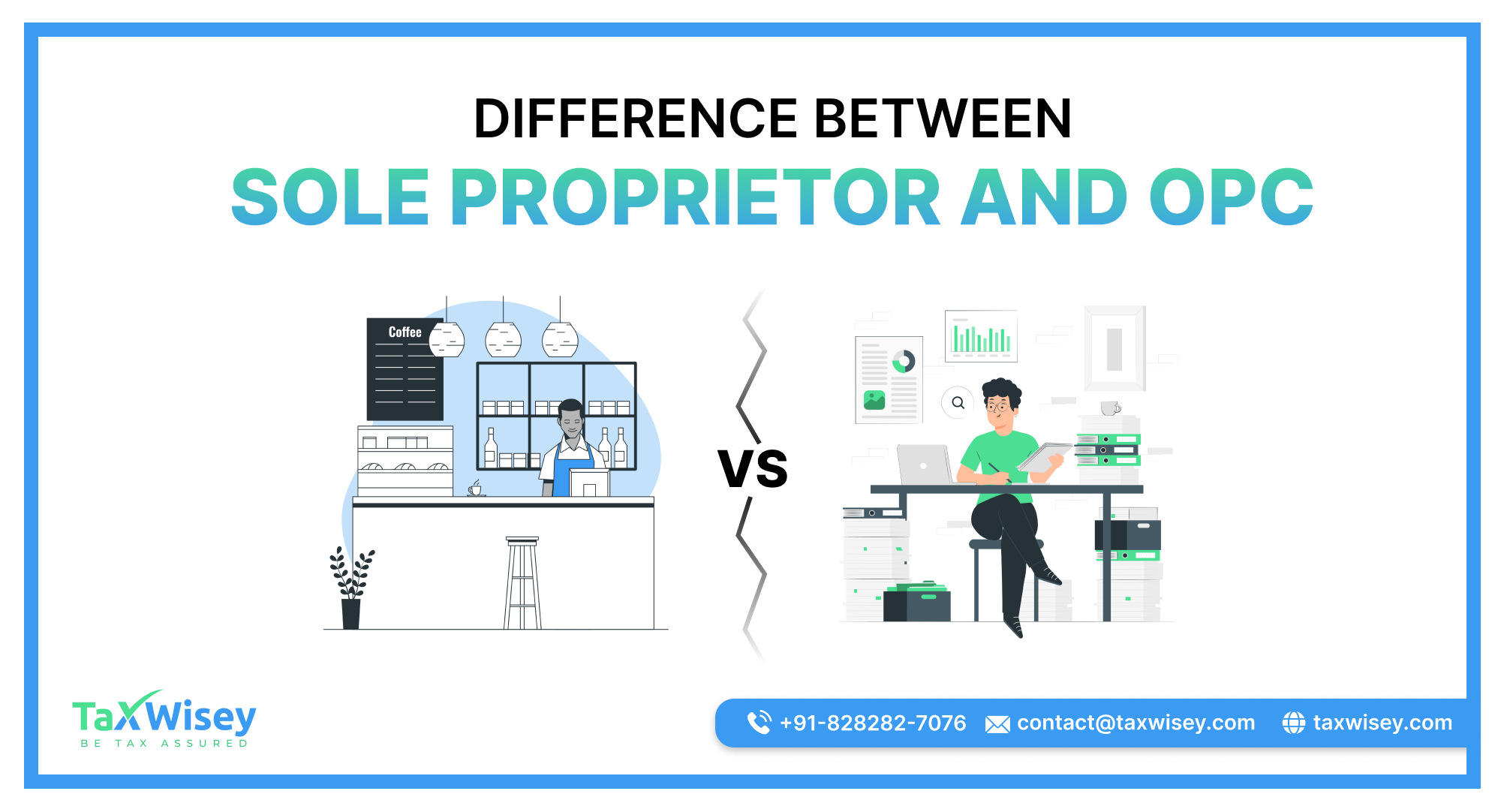
About
Sole Proprietorship Registration does not require any formal registration as it is identified through alternate registrations, such as GST registration, Shop and Establishment registration etc A proprietor can register if he wants to register his company but not bound under legal mandate. Whereas in OPC, the company must get registered under MCA and Companies Act, 2013
OPCs & Sole Proprietorship are two distinct business structures but many-a-times people get confused between the two because of their similar sounding words and assume both to be the same. In this article we’ll distinguish them on various parameters so that any newcomer when it comes to selecting the type of business has a good knowledge of the two. The decision must be taken after careful consideration of all the factors involved and see if it genuinely brings about privileges intended.
Head To Head
|
Parameter |
Sole Proprietor |
OPC |
|---|---|---|
|
Motive |
Suitable for people who are starting a new business with comparatively less risks and minimum capital and do not want to be associated with others |
OPCs allow a single entrepreneur to get his business registered as a company and get limited liability protection. |
|
Documents Required |
➢ PAN and Aadhaar Card of Proprietor ➢ Phone Number ➢ Passport Size Photo ➢ Name of the Firm / Company ➢ Business Address Proof a. Rent agreement and NOC from the landlord (in case of rented property). b. Electricity bill or any other address proof (in case of Self-owned Property). |
→ PAN and Aadhar Details of Owner
→ Photograph
→ Digital Signature Certificate (DSC)
→ Director Identification Number (DIN)
→ Address Proof
→ Registered Office Proof
a. Rent agreement and NOC from the landlord (in case of rented property). b. Electricity bill or any other address proof (in case of Self-owned Property).
→Memorandum of Association (MoA) and Article of Association (AoA). |
|
Registration Formalities |
Easy and inexpensive registration process as less formalities are required
|
The same formalities as required by any Private Company, which is more tiresome that registering proprietorships |
|
Legal Status |
Proprietor and its business are indistinguishable from a tax and legal point of view |
OPCs are treated as a private company having a separate legal entity.
|
|
Compliance Burden |
Minimal Compliances |
Compliances are much more strict than proprietorship |
|
Compliances |
In a sole proprietorship, the owner only needs to file the annual returns and the firm is required to file returns only if the annual turnover crosses the threshold limit as specified under the GST and Income Tax Act.
In case, the proprietor is liable for Tax Audit, then he/she should also deduct TDS & file TDS return. |
OPCs have to file annual returns, get its accounts audited, and meet other compliances of a Private Company. It would also have to maintain proper books of accounts and statutory audit of financial statements in the same manner as done by a private limited company.
|
|
Liability |
Sole proprietorships have unlimited liability, which means all the assets of the individual will be attached and there is no limitation on the liability. Also, Liability extends to his personal belongings as well. |
OPSs are a separate legal entity, the owner has liability limited to the extent of share capital, in case the business suffers a loss. |
|
Minimum Capital Requirement |
No minimum or maximum capital is required. One can start their business with any amount of money they want. |
There is no mandatory requirement for a minimum paid up capital. However when the paid up capital exceeds Rs. 50 lakh or when the average turnover for 3 consecutive years exceeds Rs. 2 crore , OPCs must mandatorily convert to a private limited company.
|
|
Conversion into a Pvt. Company |
Conversion of Sole Proprietorship to Private Limited Company is possible but it’s a bit tiresome process. |
The conversion of OPC into a Private Limited Company is comparatively easier than Proprietorship.
|
|
Succession |
Since there is no distinction between the business and the proprietor, the succession is possible only through an execution of the will. |
OPCs must have a nominee designated by its members for the purpose of succession.. OPC is not affected by the death of the member and has continued succession. |
Conclusion
Both Sole Proprietorship and OPCs are beneficial in their own terms and also have their own shortcomings. Hence, it solely depends upon the motive and objectives of the individuals whether they go for Proprietorship or OPC. In general, people who want to start a business from home or on a premise with a minimum amount can go for proprietorship and if you want to start a corporation solely, then OPC is the best one for you.


